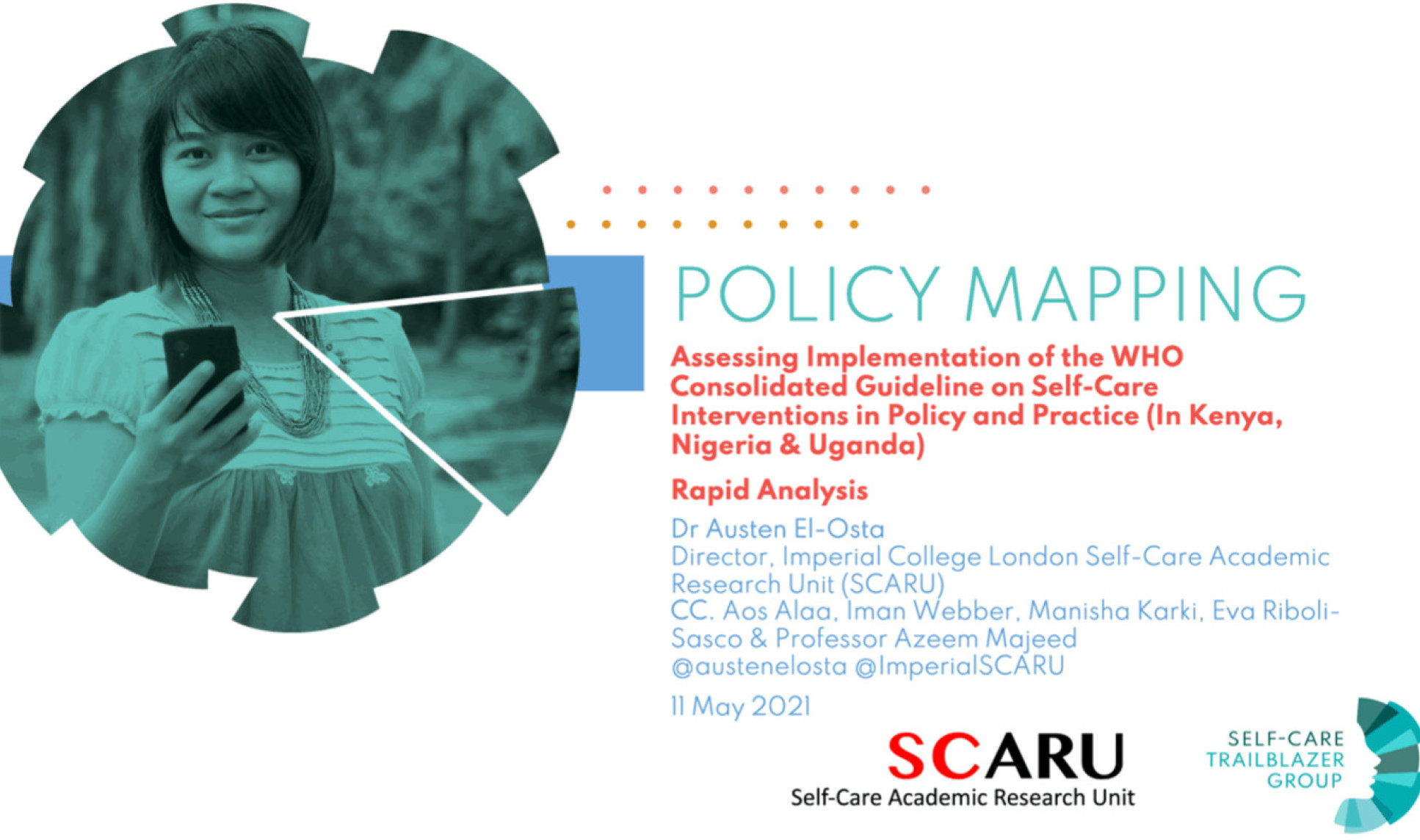Self-Care Policy Mapping
In 2020, Imperial SCARU collaborated with the Self-Care Trailblazer Group (SCTG) to develop a first of its kind, pragmatic self-care policy and practice mapping tool. The purpose of this tool is to understand the extent to which countries are implementing the 24 recommendations outlined in the 2019 WHO Consolidated Guideline on Self-Care: Sexual and Reproductive Health and Rights (SRHR) in policy and practice.
With support from the SCTG, the tool was first applied in Kenya, Nigeria and Uganda between October 2020 and March 2021, at a time when Nigeria and Uganda were in the process of developing national self-care guidelines by adopting the global normative guidance.
The study found that self-care policies and practices in all three countries were relatively advanced for perinatal health and family planning; while some were more nascent, including those for self-sampling for sexually transmitted diseases. The policy environment for eliminating unsafe abortions was the least advanced. The self-care policy mapping tool and preliminary results are available in this Self-Care Policy Mapping Deck.
With support from Population Services International’s Maverick Collective initiative, the policy mapping tool is being applied in Nepal, Malawi & Mozambique to inform recommendations for a basic minimum package of self-care interventions tailored to each country’s context. This initiative will gather evidence to inform future policy guidelines and programs by creating an understanding of the feasibility and acceptability of self-care interventions and what consumers require to adopt them effectively, safely & sustainably.



